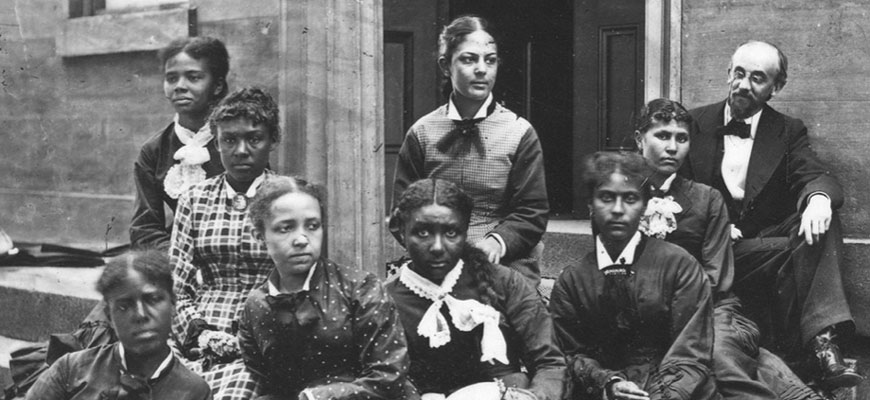
Celia Dial Saxon, one of the state’s most revered educators, is the first African American to be honored with a building name on the University of South Carolina campus.
It is an honor both well-deserved and long overdue.
At a public ceremony on April 21, a residence building at 700 Lincoln St. in Columbia was dedicated formally as Celia Dial Saxon Hall. The site of the building, which houses 297 students, is significant because it is adjacent to the historic Ward One District, where an elementary school named for Saxon was located until its closure in 1968.
Much of the largely African American Ward One neighborhood is no longer recognizable. It is now the location of the Koger Center for the Arts, Greek Village, Strom Thurmond Wellness & Fitness Center, Carolina Coliseum, residential buildings, parking areas, and private businesses.
The renaming of this residence hall is part of ongoing efforts to place USC’s history in context and to honor those who have been left out of the university’s story. Other recent efforts include renovations to the former Booker T. Washington High School (with further renovations currently being planned); the 2017 installation of two markers on the Horseshoe to credit the work of enslaved persons in constructing the USC campus and landscape; the 2018 unveiling of the Richard T. Greener statue on campus, honoring the university’s first Black professor; and the January 2023 unveiling of a State Historical Marker on the west end of the Horseshoe acknowledging the history of USC during Reconstruction. Later this year, the university expects to unveil a monument in statue form of the three students who desegregated the university on September 11, 1963: Robert G. Anderson, Henrie Monteith Treadwell, and James L. Solomon Jr.
The Board of Trustees recognizes the importance of commemorating Saxon’s impact on the culture and heritage of USC and the state through her perseverance, compassion, and devotion to educational excellence.
Celia Emma Dial was born in Columbia in 1857, just one block west of the antebellum-era university campus. During Reconstruction, Saxon became one of the first African American students to attend the South Carolina State Normal School, which was established by the General Assembly in 1873 and opened on the University of South Carolina campus in 1874. Upon earning her teaching credential, she started her career at Columbia's Howard School. She married Thomas A. Saxon, dean of Allen University's law school, in 1890, and the couple had two children. She spent the majority of her professional career as a teacher at Booker T. Washington High School.
Although she worked under the burden of the Jim Crow era, her commitment to equality, justice, and hard work enabled her to excel as an educator. Over her 57-year career, she influenced generations of Black students.
She also was an empathetic advocate who worked to provide educational and financial resources for African Americans in South Carolina and to advance the rights of women and girls. She was active in the national Women’s Club Movement and was involved in numerous organizations such as the Palmetto State Teachers' Association, the South Carolina Federation of Colored Women’s Clubs, and the Woman’s Christian Temperance Union.
As a member of the State Federation of Negro Women’s Clubs, Saxon was one of the founders of the Fairwold Industrial School for Negro Girls and the Wilkinson Orphanage for Negro Children in South Carolina’s Midlands.
Saxon died in January 1935 while grading student papers at her home in Columbia’s Waverly neighborhood. In addition to the elementary school in Ward One, at least three other locations in the Columbia area have been named in her honor. In 2008, a South Carolina Historical Marker was placed at the corner of Blossom and Assembly streets, near the location of the school that once bore her name.
The building on USC’s campus named for Celia Dial Saxon honors her legacy as an education pioneer and tireless advocate – and reminds us to keep building upon it.
Thad Westbrook, a partner at Nelson Mullins, is the chair of the University of South Carolina Board of Trustees. He has served on the Board since 2010.